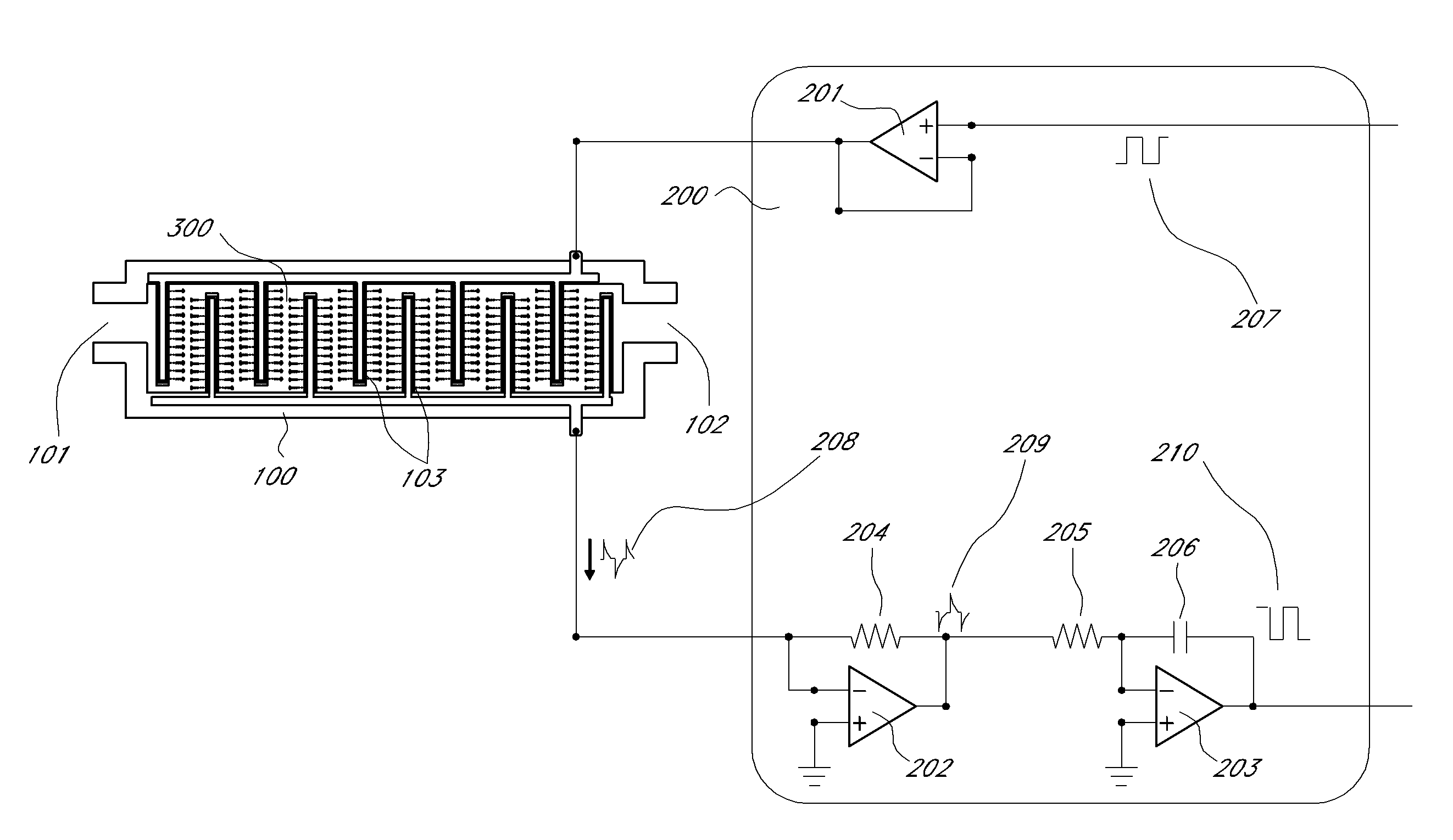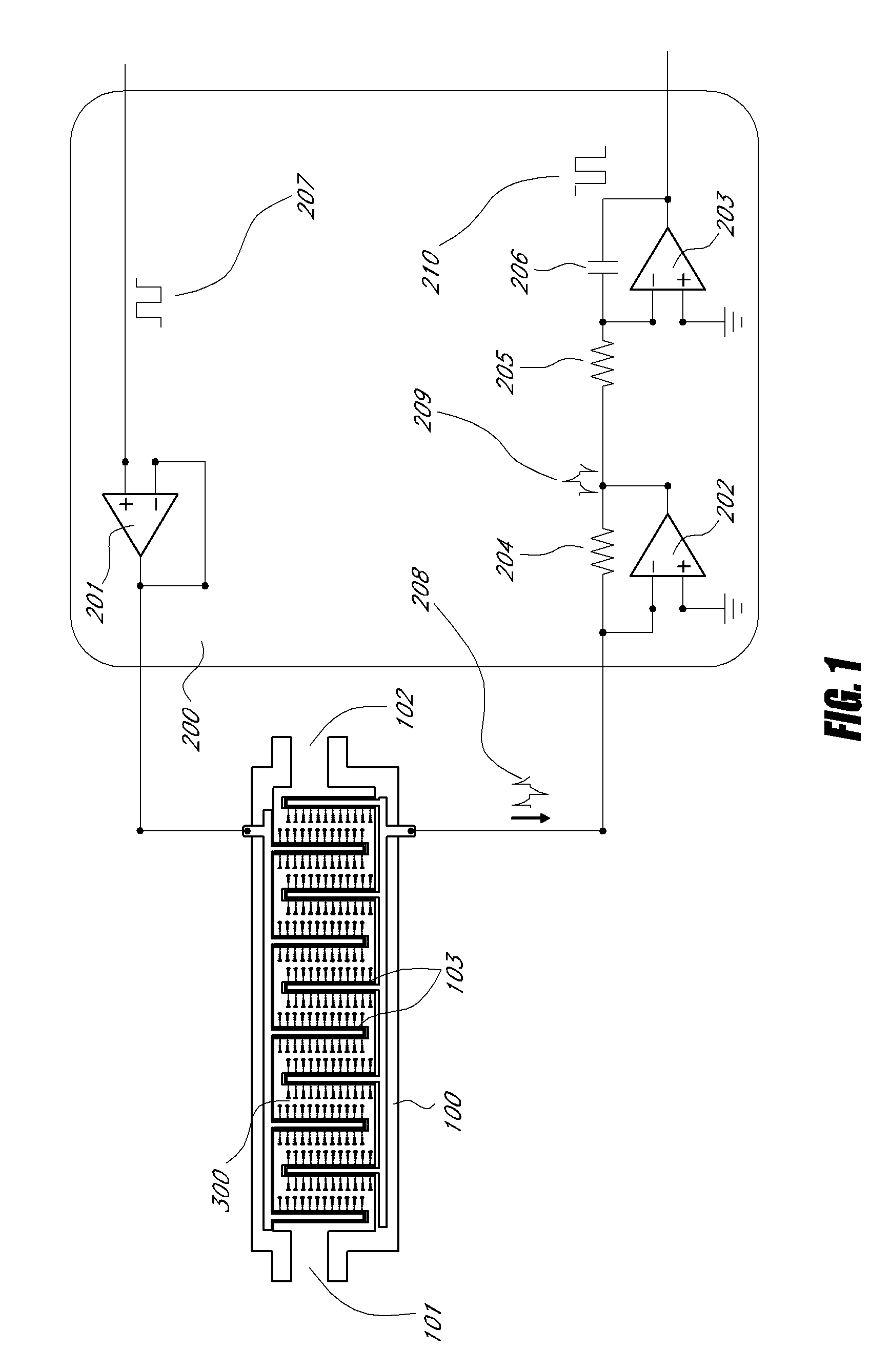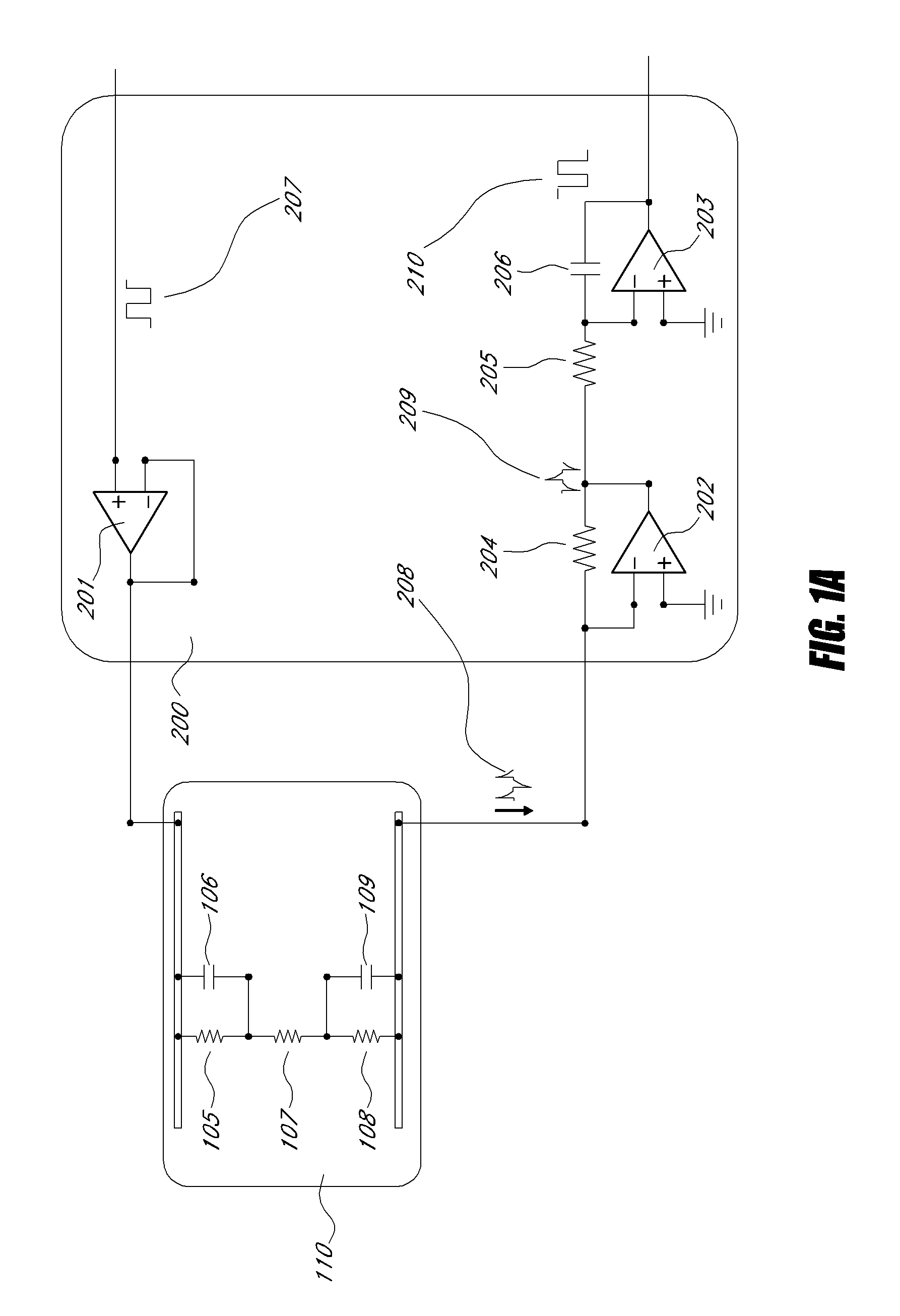Method and apparatus for forming a homeostatic loop employing an aptamer biosensor
a biosensor and homeostatic technology, applied in the field of chemical biosensors, can solve the problems of inability to conduct such studies, inability to accurately measure and quantify tumor growth, and inability to obtain the level and trend of vegf transduction, etc., to improve the delivery system, improve the diagnosis of tumor markers, and improve the accuracy of measurement and quantification
- Summary
- Abstract
- Description
- Claims
- Application Information
AI Technical Summary
Benefits of technology
Problems solved by technology
Method used
Image
Examples
Embodiment Construction
[0051]Unless defined otherwise, all technical and scientific terms used herein have the same meanings as commonly understood by one of ordinary skill in the art to which this invention belongs. Although any methods and materials similar or equivalent to those described herein can be used in the practice or testing of the subject matter of the present disclosure, the methods, devices, and materials are now described. All publications mentioned herein are incorporated herein by reference for the purpose of describing and disclosing the materials and methodologies which are reported in the publications which might be used in connection with the disclosure: Nothing herein is to be construed as an admission that the invention is not entitled to antedate such disclosure by virtue of prior invention.
[0052]“VEGF and anti-VEGF aptamer hybridization” as used herein refer to the process of hybridization of VEGF 1, to the anti-VEGF aptamer 11, and is accomplished via the molecular recognition b...
PUM
 Login to View More
Login to View More Abstract
Description
Claims
Application Information
 Login to View More
Login to View More - R&D
- Intellectual Property
- Life Sciences
- Materials
- Tech Scout
- Unparalleled Data Quality
- Higher Quality Content
- 60% Fewer Hallucinations
Browse by: Latest US Patents, China's latest patents, Technical Efficacy Thesaurus, Application Domain, Technology Topic, Popular Technical Reports.
© 2025 PatSnap. All rights reserved.Legal|Privacy policy|Modern Slavery Act Transparency Statement|Sitemap|About US| Contact US: help@patsnap.com



